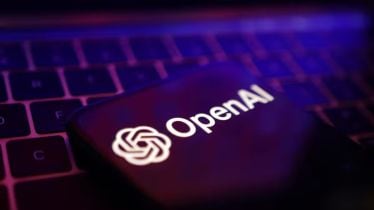OpenAI CEO Sam Altman has offered a fresh perspective on the environmental impact of generative artificial intelligence, particularly the resource consumption of his ChatGPT chatbot. In a blog post titled ‘The Gentle Singularity,’ Altman revealed figures for both water and energy usage per query, which are significantly lower than some previous estimates.
“As datacenter production gets automated, the cost of intelligence should eventually converge to near the cost of electricity. People are often curious about how much energy a ChatGPT query uses; the average query uses about 0.34 watt-hours, about what an oven would use in a little over one second, or a high-efficiency lightbulb would use in a couple of minutes. It also uses about 0.000085 gallons of water; roughly one-fifteenth of a teaspoon,” writes Altman in his blog post.
Altman’s disclosure comes amidst increasing public and regulatory interest in the sustainability of AI systems. Researchers have even predicted that AI’s total power consumption could surpass that of Bitcoin mining by the end of 2025. He also touched upon the operational costs, noting that even polite courtesies like saying “please” and “thank you” in queries have amounted to tens of millions of dollars in electricity expenses for OpenAI.
However, Altman suggests that “the cost of intelligence should eventually converge to near the cost of electricity,” implying that energy prices will become the primary driver of AI’s operational expenses as data center automation advances.
Although Altman does not state any credible source for his data, he is optimistic as far as AI and energy consumption go hand-in-hand.
Altman predicts our near future
On a separate note, Sam Altman says that ChatGPT is more powerful than any human who has ever lived. With humanity integrating this ‘artificial brain’ more into their daily lives, Altman predicts that we could be heading towards rapid development in the future.
“2025 has seen the arrival of agents that can do real cognitive work; writing computer code will never be the same. 2026 will likely see the arrival of systems that can figure out novel insights. 2027 may see the arrival of robots that can do tasks in the real world,” writes Altman.
“In the 2030s, intelligence and energy—ideas, and the ability to make ideas happen—are going to become wildly abundant,” says the OpenAI CEO. “These two have been the fundamental limiters on human progress for a long time; with abundant intelligence and energy (and good governance), we can theoretically have anything else,” he adds.
